.jpg)
On November 21, 2024, the Disaster Research Training and Management Centre (DRTMC) successfully organized a seminar titled "Completed Research Projects of DRTMC (2021-22; 2022-23)". The seminar showcased the findings of four of the eight research projects completed during the fiscal years 2021-22 and 2022-23, all supported by DRTMC.
The seminar began with a welcome speech by Prof. Dr. Md. Shahidul Islam, Director of DRTMC. He emphasized the significance of translating research outcomes into practical applications to address disaster-related challenges in Bangladesh. The seminar fostered an engaging exchange of knowledge and insights among researchers and students on disaster management and geospatial applications.
Dr. Asib Ahmed
The event's first presentation was delivered by Dr. Asib Ahmed, the principal investigator of the research project titled "Physical Accessibility and Coverage of Cyclone Shelters in the Coastal Area of Bangladesh: A Geospatial Approach Applied for Patharghata Upazila". Dr. Ahmed presented the findings of his study, highlighting the accessibility of cyclone shelters in Patharghata Upazila, identifying gaps in coverage and emphasizing the importance of geospatial tools in disaster preparedness.
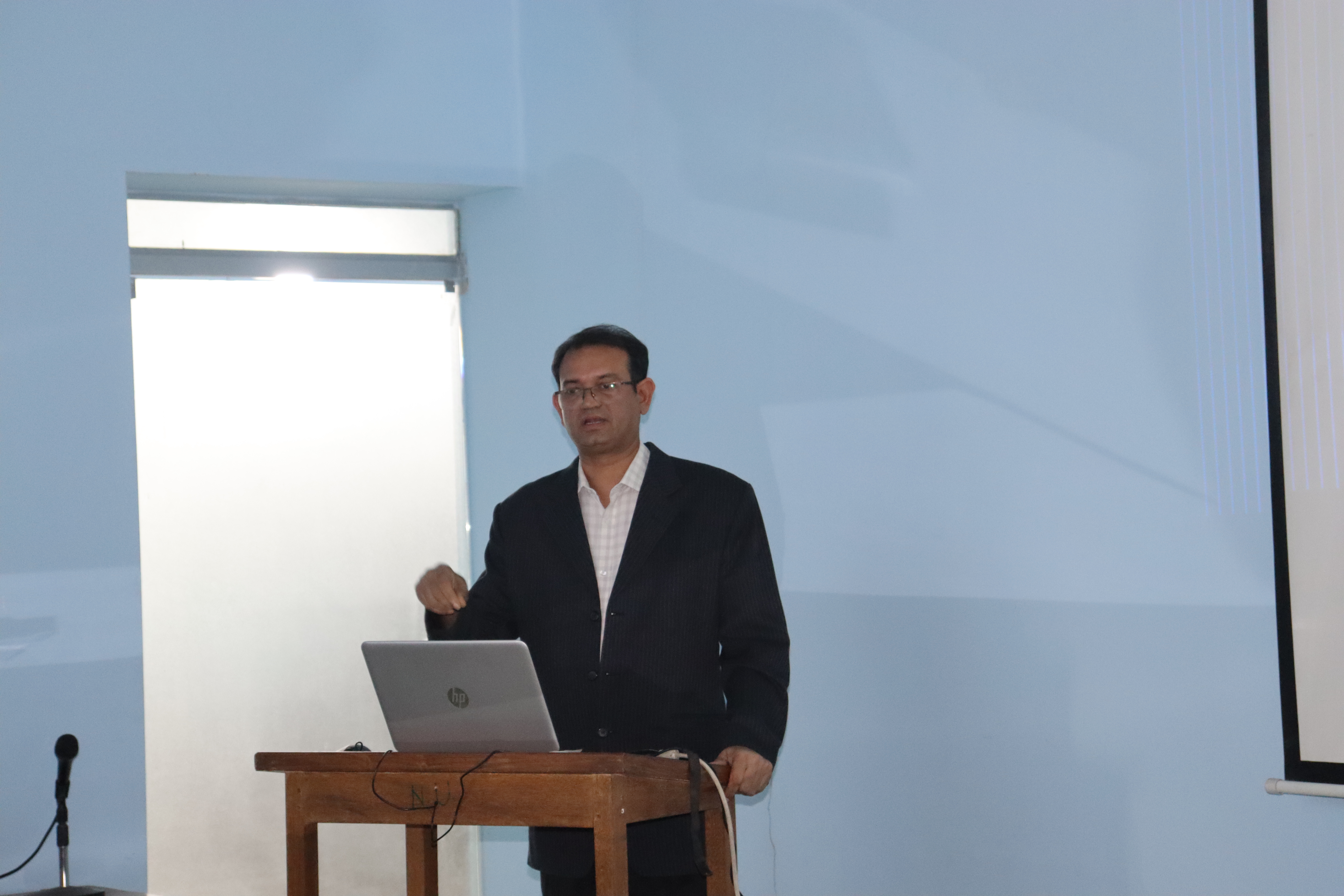
Following this, Prof. Dr. Md. Humayun Kabir presented his research on "Multipurpose Flood Protection Embankment in the Haor Region: A Study of Sunamganj District", offering insights into innovative flood protection strategies, also the design and multifunctional uses of flood protection embankments in Sunamganj, showcasing their potential to mitigate disasters and improve agricultural productivity.
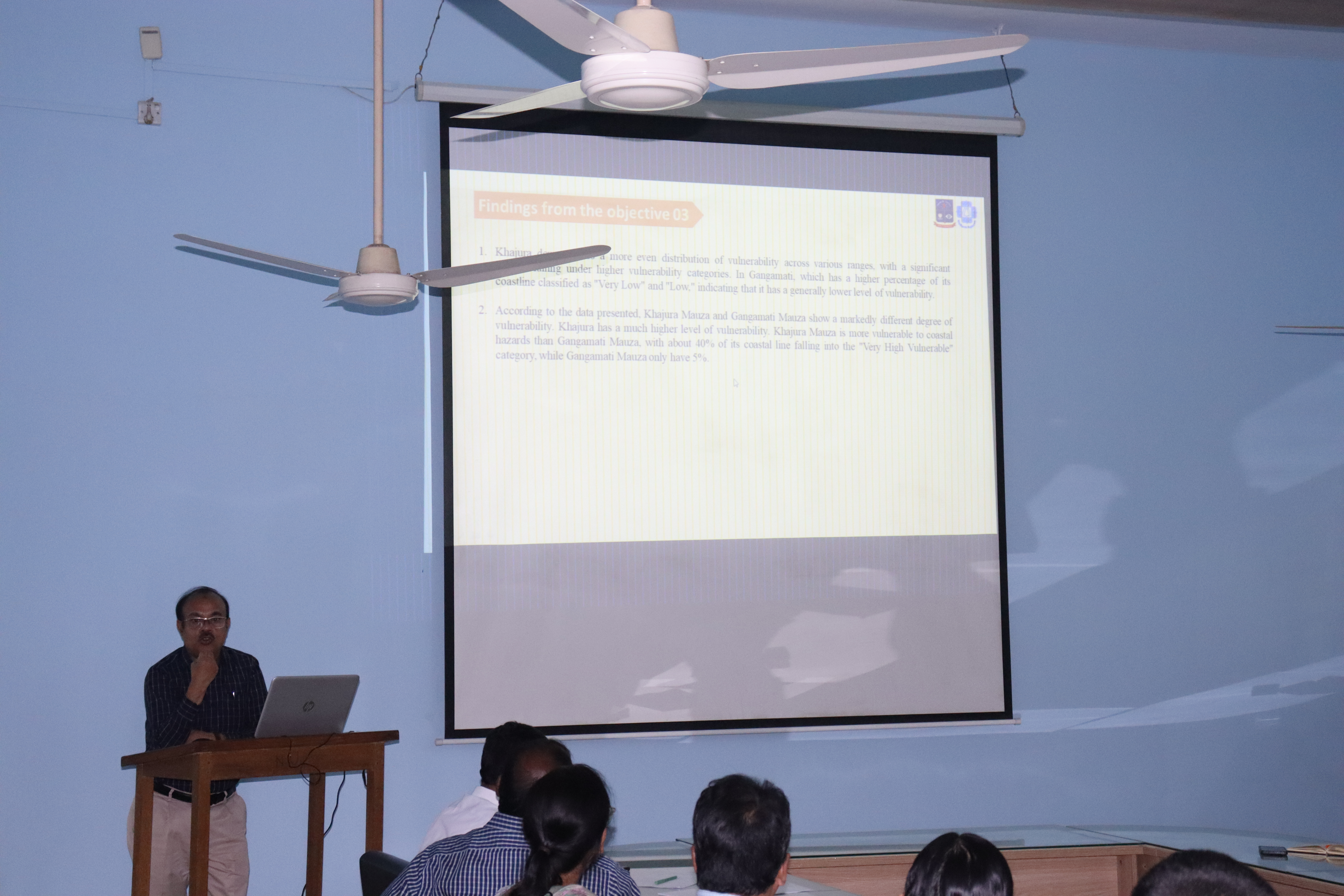
Next, Prof. Dr. Md. Shahedur Rashid took the stage to discuss his project, "Untapping the Potentials of Mauza Maps in Detecting Coastal Disasters of Bangladesh by Monitoring Coastline Shifting: A GIS and Remote Sensing-Based Analysis". His research highlighted the utility of Mauza maps and remote sensing in monitoring coastline shifts and detecting coastal disasters in Bangladesh.
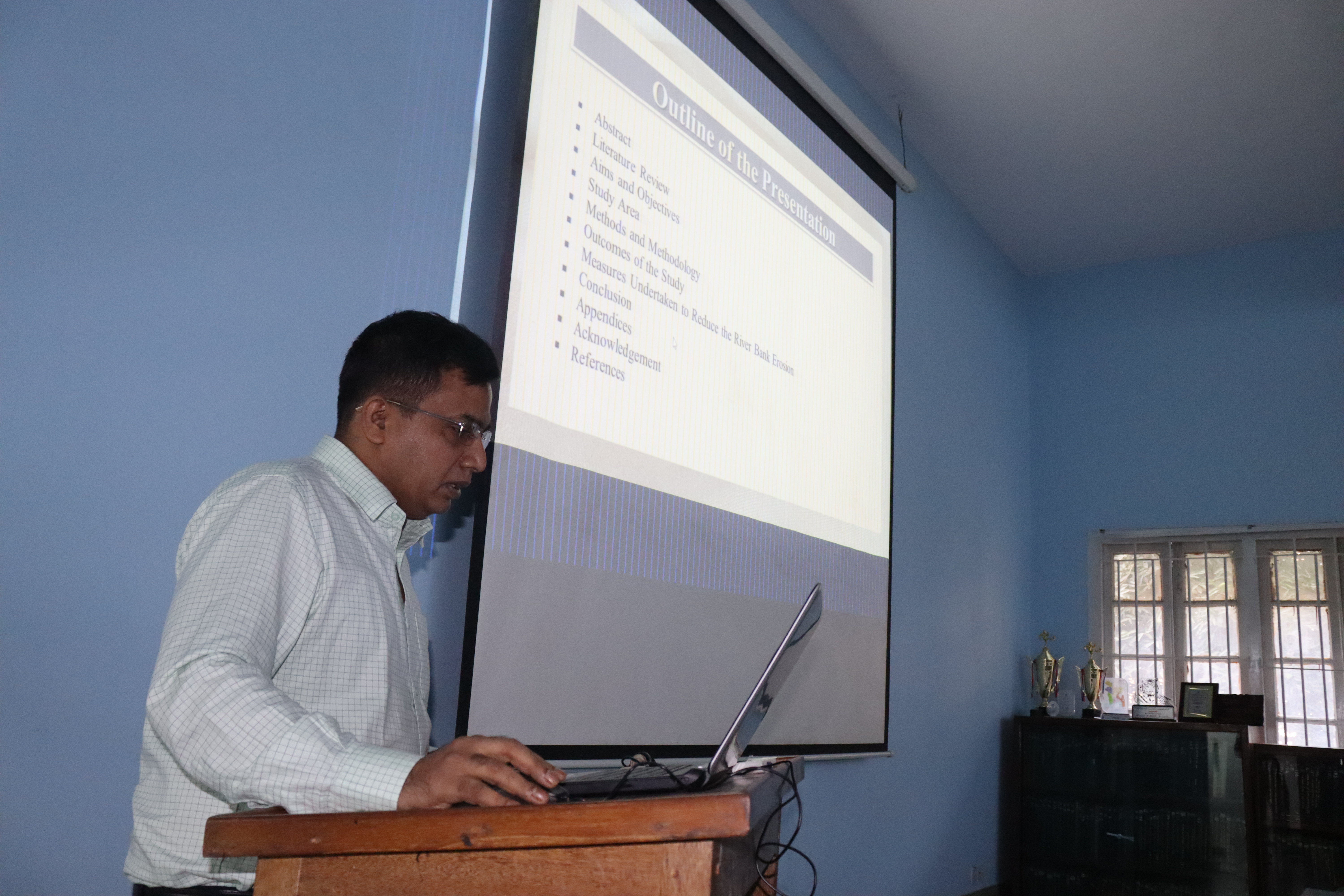
The final presentation was delivered by Dr. Faruk Hossain, who shared findings from his study, "Livelihood Impacts Due to Riverbank Erosion Hazard Among the Affected Households Along the River Jamuna of Bangladesh". His research provided a detailed analysis of the socio-economic consequences of riverbank erosion on households along the Jamuna River and proposed mitigation measures to support affected communities.
The seminar was graced by the presence of Prof. Dr. Kazi Matin Uddin Ahmed, Dean of the Faculty of Earth and Environmental Sciences. The event was chaired by Prof. Dr. M. Shahidul Islam, Chairman of the Department of Geography and Environment and Director of Disaster Research Training and Management Centre (DRTMC), University of Dhaka.
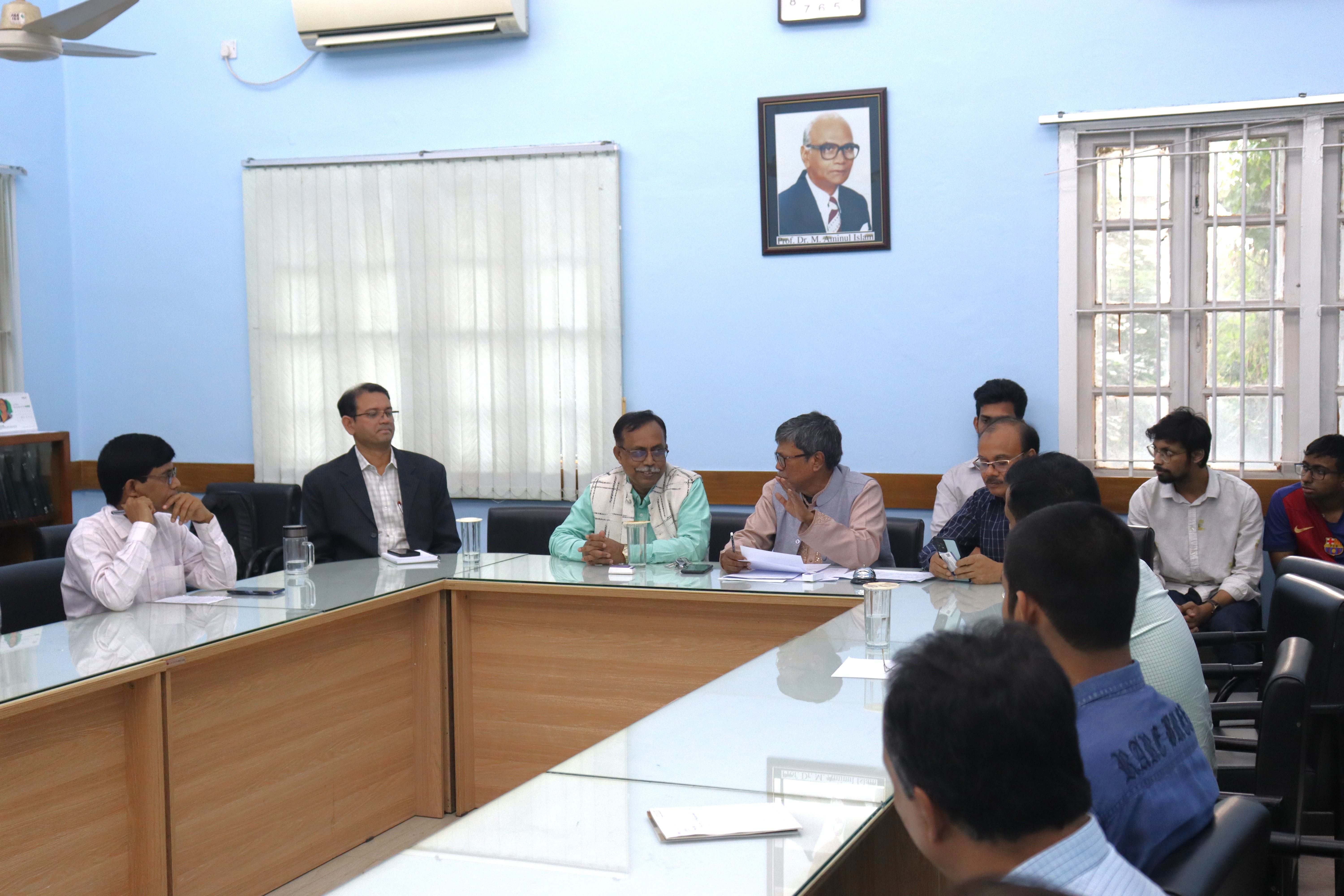
Additionally, the seminar was enriched by the participation of Mr. Netai Chandra Dey Sarker, Director of the Department of Disaster Management, along with meteorologists, academicians, and students at the MS, M.Phil. and PhD levels.
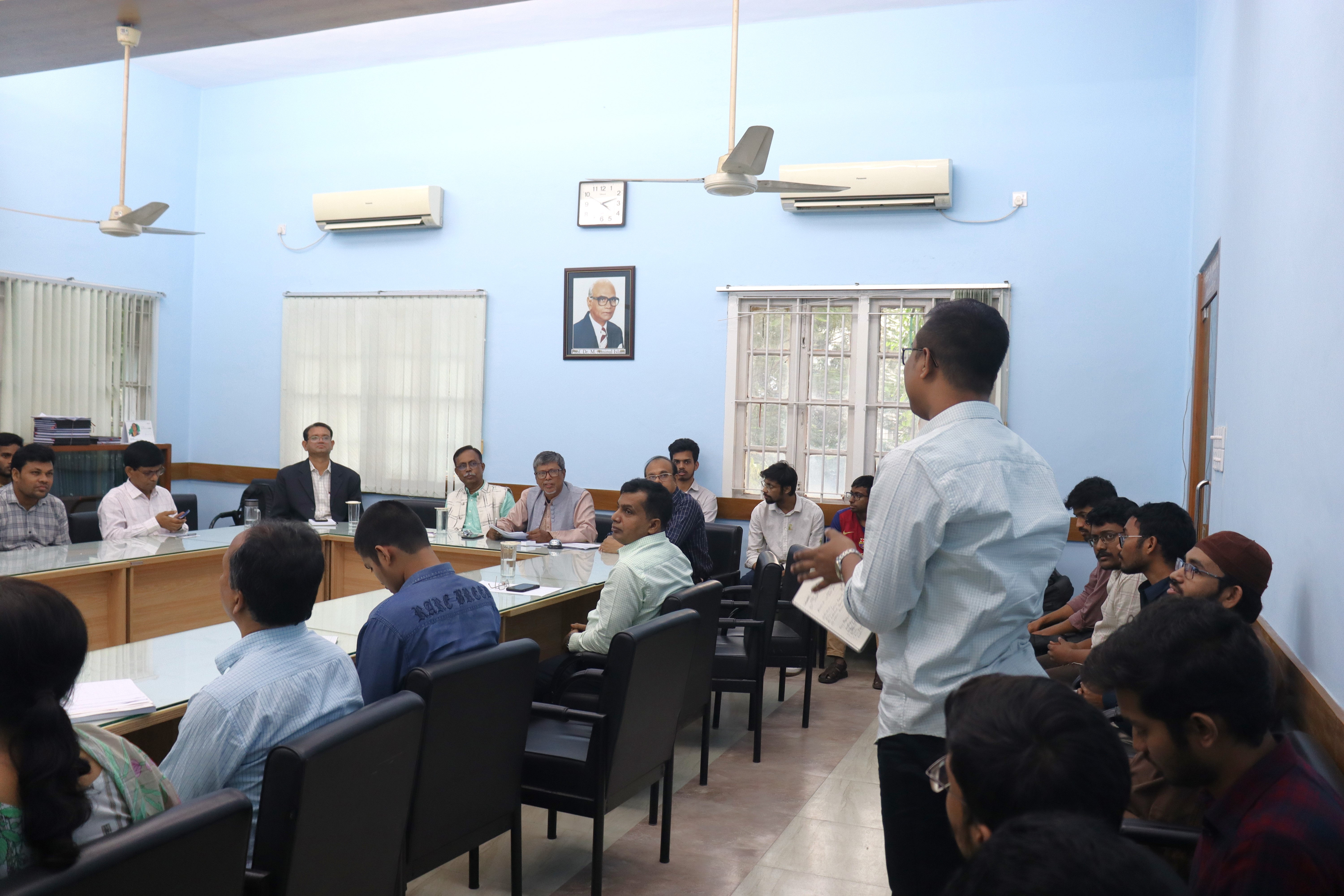
The program concluded with a vibrant discussion session, where experts and attendees actively engaged in exchanging ideas and perspectives. The discussion covered research methodologies, findings, and their implications for disaster management in Bangladesh. Participants shared insightful suggestions for future research, focusing on broadening the scope of geospatial studies and practical disaster response strategies, making the seminar a resounding success.
The seminar concluded with closing remarks by Prof. Dr. Md. Shahidul Islam. He expressed gratitude to the presenters for their insightful contributions and emphasized the importance of integrating research findings into actionable disaster management frameworks. Dr. Islam encouraged continued collaboration among researchers and students to address pressing environmental challenges in Bangladesh.
Highlights and Outcomes